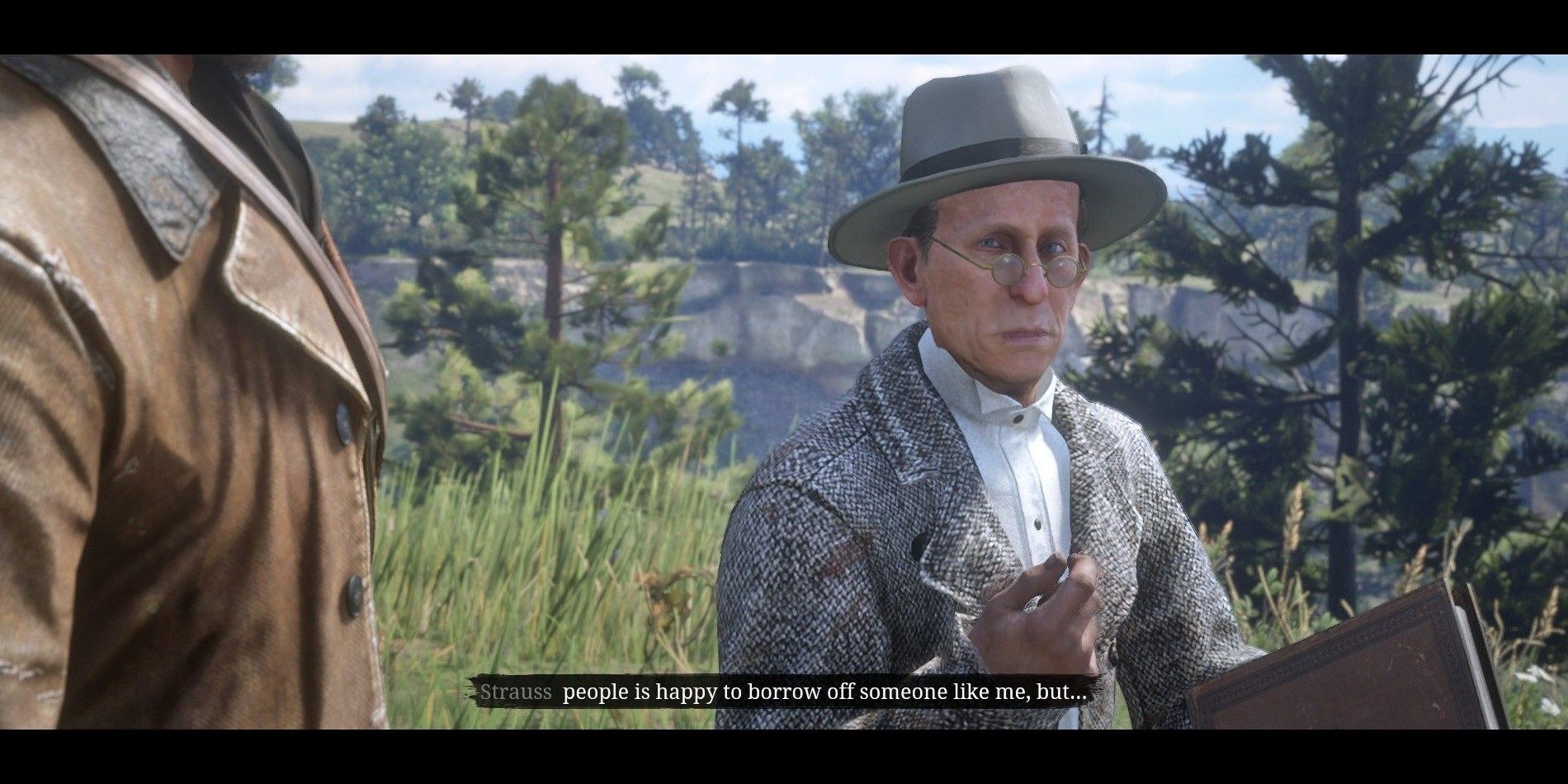Strauss Was Against Everything Red Dead Redemption 2's Gang Stood For

The Dutch van der Linde gang of Red Dead Redemption 2 stood for something once. They were outlaws with a code, at one time, but the actions of the money-lender Leopold Strauss were a bizarre contradiction of the gang’s purported mission statement. The predatory lending of Strauss is a difficult pattern to reconcile for the group. While it generated steady profit, it is also the antithesis of what Dutch stood for, as Strauss preyed on the poor and vulnerable, and destroyed many lives in the process in RDR2.
When Dutch confronts the corrupt tycoon Leviticus Cornwall, he admits they are both robbers and killers, and says the “only difference I can see is I choose whom I kill and rob, and you destroy everything in your path.” Though the gang is already well beyond altruism at that point, with Dutch operating on desperation instead of ideals, the idea that Dutch’s philosophy involved selecting “deserving” victims makes Strauss’ inclusion in the gang difficult to rationalize, as Strauss was every bit as indiscriminately destructive as Cornwall in Red Dead Redemption 2, albeit on a smaller scale.
Strauss was a con-man, like Hosea and others, when Dutch brought him into the gang to act as their accountant. Strauss also ran a line of money-lending schemes. Based on the missions Arthur undertakes for Strauss, there is no selective code at work in Strauss’ choice of victims. He will lend to anyone desperate enough to take the money, and he shows no mercy or ethics in his willingness to collect on those loans, even if it ruins the lives of hard-working families during Red Dead Redemption 2's narrative.

Strauss preys on those in need in RDR2, pushing them further into hopelessness. In the case of Thomas Downes, Strauss indirectly causes the death of Arthur Morgan, as he sends Arthur to collect from Downes, a man afflicted with tuberculosis who passes the disease onto Arthur. After Thomas Downes dies from his illness, his wife tells Strauss that her husband has passed on, and Strauss continues to enforce the debt against the widow. The pattern continues, as Strauss’ loan to the Londonberry family forces them to work numerous odd jobs and sink further into poverty and desperation. Arthur eventually banishes Strauss from the gang, but it is difficult to reconcile why he was permitted to engage in these activities in the first place.
Though Strauss’ role in Arthur contracting a fatal illness likely also played into the decision to cast him out from the gang, it is hard to fathom why he was ever permitted to engage in money-lending schemes at all. When Arthur first takes on a collection mission for Strauss, he comments, “And here was me believing Dutch’s bluster about us helping folk.” Arthur is fully aware that Strauss is engaging in usury, and preying on those in need, which clearly conflicts with the gang’s ideals. Strauss' justification that collecting on debtors is "legal work" is an obvious embodiment of the corrupt system of power Dutch stood against.
One possibility is that the loans were a recent pattern, not something Strauss had routinely done prior to the disastrous Blackwater incident and that previously he had only acted as the gang’s accountant. Though Dutch references ideals in his speeches, the course of RDR2’s story follows the gang after they have already given up on changing the world. They are desperate, following the failed robbery at Blackwater, and are seeking only one large score so they can afford to disappear, which could account for gang members, including Strauss, acting against their former code.
Given the status quo for Dutch’s gang changed prior to the start of the game, it is possible Strauss’ predatory loans were a symptom of the gang’s loss of virtue, as they abandoned their ethics and shifted focus to survival by any means. Information revealed in the epilogue notes that Strauss refused to betray any information on the gang to the Pinkertons, suggesting he had a fierce sense of loyalty for the gang, even if he was otherwise morally bankrupt. This reinforces the notion that Dutch’s gang has forsaken its convictions before the start of Red Dead Redemption 2, and the only value remaining was loyalty to one another.
from ScreenRant - Feed https://ift.tt/3iTvuri
via Whole story

Post a Comment